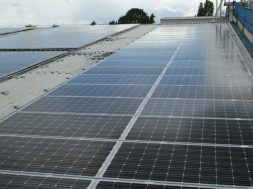
New Delhi – Industry body Assocham has urged the Centre to fix Goods and Services Tax (GST)rate for hydropower at par with wind and solar so that value added cost and tax commensurate for all renewable power projects.
“Hydro projects attract 18 per cent GST for equipment and 28 per cent for cement while the same for solar is made five per cent Engineering, Procurement and Construction (EPC) which has a glaring additional cost impact on power produced from hydro projects,” noted an Assocham paper titled Need for Hydropower in India ? Industry Submission.
It also said EPC contracts for hydro should be categorised under five per cent GST.
Currently, electricity at the consumer end or at discom end does not attract any GST and therefore the last leg of consumption of GST is with the generator.
The paper was released by Power Minister R K Singh at an Assocham Round Table Discussion on Hydro Power in India, here last evening.
Assuring the hydro industry players of looking into the demands of the sector, Singh informed that the Centre?s hydro policy was in final stage which would be sent for Cabinet approval within a fortnight.
The paper suggested that transmission charges for hydro projects should be energy based. It said solar and wind get freewheeling for approximately 20 per cent plant load factor (PLF) while hydro projects have to pay transmission charges based on capacity.
It also recommended that states should waive free power requirement as that would reduce hydro tariff in initial years and make it more viable and competitive.
Besides, the note said hydro projects should be awarded on build, operate and own (BOO) basis for private sector instead on the basis of build own operate and transfer (BOOT).
Further, the paper suggested for payment security as given to solar projects to be extended to hydro which also requires firm power purchase agreement (PPA).
Though the hydro projects lead to development of remote locations and build a lot of social/enabling infrastructure around them, it burdens the project while same is not with other renewable generation, the paper noted.
“Thus social/enabling infrastructure cost should be funded by Hydro Development Fund or National Clean Energy Fund (NCEF) as defined in proposal to Expenditure Finance Committee (EFC) thereby limiting it to indicative list of projects in that proposal,” the paper said.
The paper also stressed that an online, time-bound single window approval and clearance should be the mandate for developing hydro power sector and the same may be recommended to all states.
“This will facilitate transparency, accountability, efficiency and significantly improve ease of doing business,” it said.











